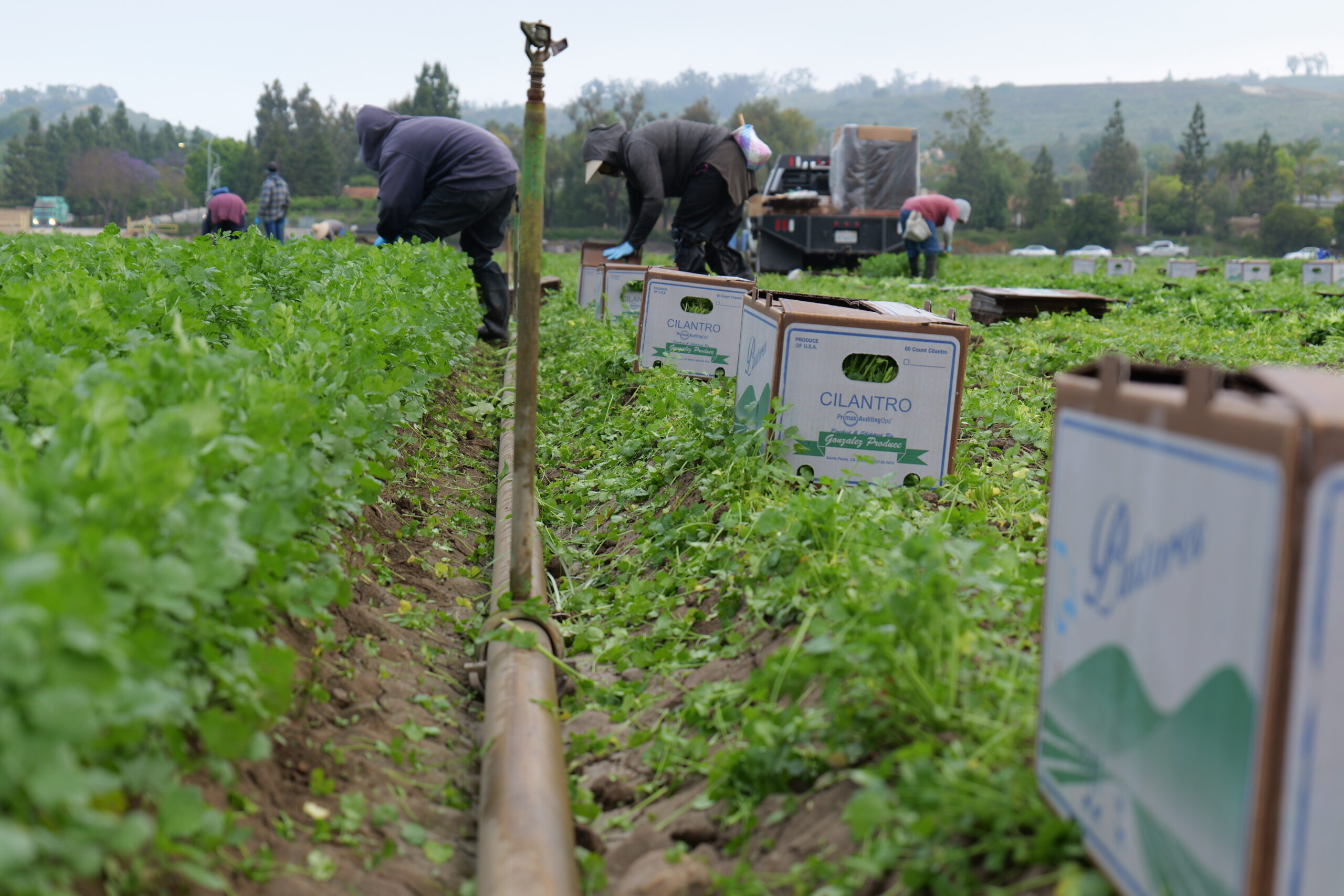The Scars Left Behind

By: Miguel Hernandez
(Listen to the audio version in Spanish and Mixteco, variant from Guadalupe Nundaca 5 min)
The California Farmers Collective estimates that there are between 500,000 and 800,000 agricultural workers in California today, of which 96 percent identify as Latino. As is commonly known, agricultural work is not an easy task, but those who manage to escape from it are scarred for life. This is the case of Adolfo Villanueva, a farm worker who worked in cilantro production for most of his life. At age 46, Adolfo finally decided to give up farm work due to his family’s growing concern for his health and fear that his body would begin to fail him. After more than thirty years of working in agricultural spaces, Villanueva recounts those years and mentions that he will never be able to forget them because of the marks left on his hands.
For Villanueva, the crop he worked for most of his life was cilantro. To harvest cilantro, workers bend down and grab a small bunch with one hand. On the other hand, they usually carry a knife with which they will cut the bunch. Afterward, they tie the bunch of cilantro with ties that they carry with them and proceed to repeat this process for eight hours.
One of the main pesticides used in cilantro production is Dacthal. The Environmental Protection Agency warns of significant health risks to pregnant people and their developing babies exposed to Dachtal. They warn that these people should take measures to protect themselves from permanent and irreversible damage caused by the use of this pesticide as quickly as possible.
Dacthal is a pesticide so toxic it is banned in the UK. Now, after leaving the fields, Villanueva looks at the palms of his hands and believes that the use of pesticides is what caused them to become unrecognizable. Villanueva mentioned that at first, he noticed spots starting to appear on his hands after just a couple of years of working in the cilantro fields. Later, Villanueva became concerned when he noticed how more and more spots began to form on his hands. As a result, Adolfo began wearing gloves, but the stains on his hands never disappeared.
A report published by Farmer Justice in 2023 mentions how “exposure to pesticides causes agricultural workers to suffer more injuries and illnesses related to chemicals than any other workforce nationwide. Pesticide exposure poisons up to 20,000 farmworkers each year, according to Environmental Protection Agency estimates.
Pesticide exposure is an unavoidable reality for farmworkers, as they and their families are exposed to pesticides through the air they breathe, the water they drink, and the food they eat. For workers like Villanueva, the scars on their hands are a constant reminder of how dangerous pesticides can be.
